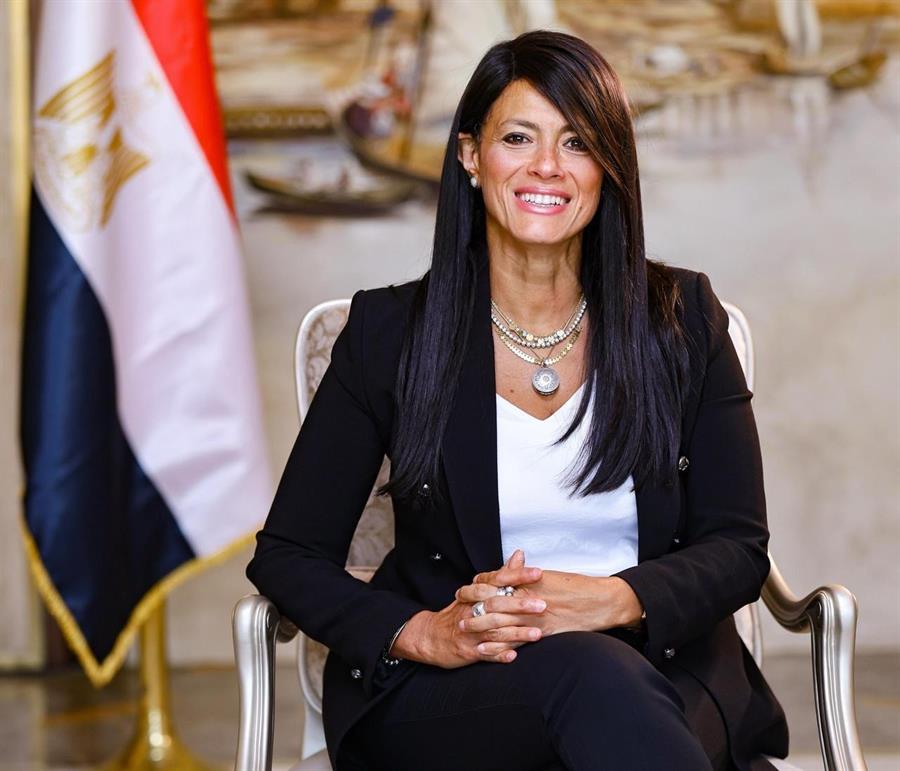Dr. Rania Al-Mashat, Minister of Planning, Economic Development, and International Cooperation, in an Interview with Richard Quest on CNN

08 November 2025
The Grand Egyptian Museum is an Integrated Development Project for Tourism, Culture, and Entertainment.
The Grand Egyptian Museum is a Boost to Achieve the Goal of 30 Million Tourists by 2030.
* We have developed infrastructure and airports to link beach tourism areas with cultural tourism.
* Tourism is one of the sectors with the highest employment multiplier rates and contributes significantly to the Gross Domestic Product (GDP).
* Infrastructure projects have enhanced the economy's readiness for increased investments and exports.
* Our economy is diversified with a strong industrial and technological base and infrastructure supporting investment and tourism.
* We have overcome successive crises through the resilience of the Egyptian economy.
_* We continue to reform to strengthen the clarity of economic policies
12% of Global Trade Returns to Transit through the Suez Canal with the Historic Peace Agreement._
* We have achieved significant progress in growth indicators despite regional challenges and the decline in Suez Canal activity.
H.E. Dr. Rania Al-Mashat, Minister of Planning, Economic Development, and International Cooperation, emphasized that the Grand Egyptian Museum (GEM) is not just for Egypt, but for the entire world, and will be a tourist destination for various visitors from all countries, expected to attract millions of visitors.
Dr. Al-Mashat pointed out that the museum is a strong addition to cultural tourism in Egypt, as well as an integrated development project for tourism, culture, and entertainment. It is characterized by its proximity to main axes and Sphinx International Airport, in addition to the private sector increasing the number of hotel rooms around the museum.
This came during her interview with journalist Richard Quest on CNN International during her recent visit to London. Dr. Rania Al-Mashat noted that the Grand Egyptian Museum is the largest museum dedicated to a single civilization and houses the complete collection of King Tutankhamun.
Dr. Al-Mashat highlighted that the museum reinforces the state's vision aimed at attracting 30 million tourists by 2030, especially given Egypt's advanced infrastructure and airports that connect beach tourism areas with various archaeological sites.
Minister Al-Mashat added that there is another aspect of great importance to the opening of the Grand Egyptian Museum, which is the employment multiplier effect. The tourism sector is one of the sectors with the highest employment multiplier, where every direct job opportunity in the sector creates 2-3 indirect job opportunities, which reflects the great importance of the sector in the Egyptian labor market.
Dr. Rania Al-Mashat mentioned the development path in the Egyptian state, which has spent heavily on infrastructure in recent years, paving the way for increased development in various fields such as tourism, industry, and exports, among others. She stressed that the progress achieved in infrastructure has made the economy more ready for increased investments, particularly in renewable energy sectors, and industries like pharmaceuticals and spinning and weaving.
Dr. Al-Mashat noted that Egypt has trade agreements with over 70 countries worldwide, and is linked to a free trade agreement with the African continent. The government has already implemented measures to facilitate the investment climate and improve the business environment, reflecting the significant opportunities for increasing Egyptian exports and foreign trade.
Minister Al-Mashat reaffirmed that everything we are discussing reflects the diversity of the Egyptian economy, given its industrial base, the continuous development in the digital transformation, communications, and information technology sectors, and the boom we are seeing in the tourism sector. She explained that all this has been reflected in increased growth rates, reaching 4.4% in the last fiscal year and 5% in the last quarter, despite the continued contraction of the Suez Canal sector due to regional tensions.
Regarding the situation in the region, Dr. Al-Mashat said: "In my last meeting with you in February, the region was going through a very difficult period, but now we have a peace agreement led by H.E. President Abdel Fattah El-Sisi, President of the Arab Republic of Egypt, in partnership with the United States, Qatar, and Türkiye. Of course, this agreement will have an impact on trade movement through the Suez Canal, with 12% of global trade traffic returning to the canal, and will reflect on the economy of the region and the world. What we have learned in past years is that despite the shocks, we strengthen our resilience through continuous policies and reforms, which is why we continue with reforms to advance policy predictability and drive the resilience of the Egyptian economy."
Dr. Al-Mashat concluded by asserting that the Egyptian economy has overcome many successive crises through its flexibility, and that the government is continuing reforms to promote the clarity of economic policies.









